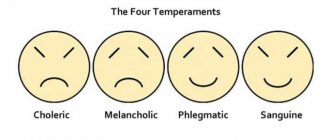Prudence is a certain personality quality acquired in the process of development and maturation, which allows one to make a choice in favor of the correct and most effective ways and methods of achieving goals. Prudence is, in simple words, a person’s ability to be guided by the arguments of reason and choose those methods that will bring either the best results or the least losses. Usually this quality is viewed in a positive aspect and is equated with the main benefactors of the soul.
This character property is close, but not identical to wisdom. Wisdom can be theoretical, can manifest itself in many aspects of human existence, and prudence has a clear directional vector. It always has a practical side and individual implementation features.
Prudence concerns a person directly, and if wisdom is able to build a strategy for improving the fate of all mankind, then prudence builds a clear scheme that allows, for example, to improve the living conditions or income level of a person exhibiting this quality.
Synonyms
After it has become clear what kind of bird this object of our study is, let’s consolidate the result and turn to synonyms. The list won't be long. Here he is:
- sanity;
- deliberation;
- prudence;
- sobriety;
- sophistication.
All replacement words indicate that a prudent person is in tune with reality. He does not build castles in the air, does not allow himself to be carried away by phantoms. There are both pros and cons to this. When a man or woman’s main helmsman is common sense, then it will be safe and comfortable to be with him or her. From such people it is clear what to expect. As spouses they are good, but as lovers they are boring. Prudence is a bad advisor when you want an explosion of emotions, romance and other exotic things. But let's not destroy the image.
What are the benefits of prudence?
Like any other personality trait, prudence has its merits:
- When achieving small, immediate goals, it is possible not to lose sight of long-term ones.
- Understanding that caring for your well-being should not infringe on the interests of those around you.
Interesting! Prudence consists in not destroying the disposition of others and preserving it for its own sake (Hegel).
- Protection from rash actions in cases where the danger is much higher than the positive consequences of a particular action.
- Freedom from any manifestation of recklessness.
And another undoubted advantage is the ability to avoid extremes both in the sphere of emotions and in actions.
Only awareness generates sobriety and realism of view
There are no final answers, not to mention the “damned” questions of human existence, but even when it comes to relationships with people, you can’t really understand what to do? Sometimes crazy love leads to a strong marriage, but rarely. But if you take common sense as your advisor and rely on the rationality of the choice, then, most likely, the experiment will be a success. Another thing is that living in a marriage without love is quite depressing. In general, prudence and wisdom coexist with tediousness. Imagine calculating everything, worrying about everything, taking into account details, facts, shades of meaning. Yes, let's face it, prudence is what often drives people crazy, so they throw themselves into all sorts of troubles to somehow let off steam.
And yet, thinking is more useful than living under the influence of the moment, by intuition. Practice shows that those who do not think, do not analyze, end up sailing to a terrible place, and, for lack of anything better, then call this abode their life. In this sense, an instructive song by V.S. Vysotsky "Two Fates". The classic is on our side, he also votes for the conscious existence of man.
What is prudence
Prudence is not an innate quality, but is acquired in the process of gaining life experience, as well as the received upbringing and the influence of the social environment. Also, those who listen to the advice of others and are able to listen to their judgments, rather than acting stubbornly at their own discretion, are more likely to develop their own prudence.
The trait of prudence gradually develops and becomes an integral personal quality in those who are accustomed to carefully thinking and calculating situations. By giving oneself time to think, a pause before making a decision, a person is not only able to notice more, but also make a better decision, which ultimately becomes more prudent.
Prudence is always demonstrated by a person's fortitude. This is a kind of internal lighthouse that continues to shine through any storm and does not go out in the calm. A person will not allow himself a reckless revelry when everything is fine, and will not lose self-control in a critical situation.
Prudence is, in simple terms, a certain sound judgment with the practical application of its conclusions. It is always practical, be it creative thoughts implemented in new projects, ideas that can please others, or material calculations of losses and profits in case of choosing a certain strategy.
Reasonable activity always gives direction and correction to prudent actions, just as madness and prudence are opposites. But the difference between the poles lies not only in the participation of the cognitive sphere in the assessment and choice of actions, but also in the active orientation towards moral and spiritual norms.
Prudence always refers to one's own internal spiritual and value criteria, and every action that brings a specific benefit will be performed in accordance with the main existential values of a person.
Madness and prudence strive to satisfy desires, but in the case of insane passions, a person simply goes with the flow and does not correlate momentary impulses with his general motives. Such behavior can lead to repentance and destruction of one’s own life, which is excluded with prudence.
Prudence focuses on the practical application of wisdom to improve a specific situation. Depending on the goals of the individual, this may be to ensure one’s own well-being and safety, or to ensure the benefit of the country, enterprise, or the promotion of an idea. Whatever the magnitude of the situation, prudence forces a person to use his own knowledge, skills, and reasoning abilities in the best and most useful way. This skill includes the ability to assess risks, highlight what is important, avoid manipulation and suggestion, and stay true to the chosen course.
Unlike most human qualities, which are perceived differently depending on the degree and situation of manifestation, prudence is interpreted by everyone exclusively positively. The perception of any action as prudent may be at issue. For example, it may be considered crazy to give all your savings to an unknown person, but if it later turns out that the life of a loved one who was threatened was at stake, then the act becomes more than prudent.
This quality helps to concentrate on the main and long-term goal, without being scattered into small ones and without succumbing to momentary passions. Prudence also gives a person an understanding of how to achieve his own good, without harm to others, and possibly with mutual benefit. This approach always works for the long term and protects you from troubles in the future.
Prudence can protect a person not only from his own reckless actions, but also from the influence of other people's recklessness. The ability to predict and understand risks can manifest itself both in choosing a safe road instead of trajectories where criminal and dangerous people gather, and in the long-term prospects of financial savings. This can be help in avoiding extremes in the manifestation of one's own emotions, which can frighten someone or harm the cause, as well as the ability to predict and control or distance oneself from similar emotional outbursts on the part of others.
This is a kind of highest manifestation of moral qualities, when a tolerant attitude towards others and the ability to cope with any situation is dictated not by titanic internal efforts and patience, but by a deep understanding of the situation and life.
Does the mind have a weak side?
Being a cold, rational and analyzing person is also not the best fate that can befall a person. A little madness won't hurt anyone (of course, here we are talking about the everyday understanding of the word, and not the psychiatric one). Sometimes you can surrender to the power of love, joy, pleasure, the main thing is not to get carried away. Of course, common sense has some disadvantages, but it clearly has more advantages. Someone who thinks about the consequences of their actions, who has strategic thinking, is less likely to get into trouble, but it is worth remembering that this is not a panacea. Life is spontaneous, unpredictable and prone to entropy.
Therefore, it is important not only to correctly answer the question of what prudence means, but also not to get lost in life. As S. Kalugin sang: “It’s not difficult to find, but it’s ten times more difficult not to lose.”
How to be a reasonable person in everyday life
Prudence should always be exercised, especially when the issue concerns the four main areas of life: work, study, home and decision-making.
In the house
First of all, you need to learn how to solve problems with household members, using critical thinking. This means that you should discuss the current circumstances, evaluate and only then make a choice.
In solving intra-family problems, for example, controversial situations between relatives, psychologists recommend using the following methods:
- active listening;
- rational analysis;
- discussing the situation in order to find a compromise.
Let's imagine a simple situation: two teenage brothers quarreled over who will wash the dishes today. What to do in this case? Suggest doing this one at a time. So, if one of them washed the dishes yesterday, it would be fair if today he had a “day off”.
Prudence also applies to managing the family budget. There are several recommendations:
- Keep your finances in order. What does it mean? It is worth recording all expenses that are in one way or another connected with the house. We are talking about rent or utility payments, groceries, repairs, etc. This will help you control expenses and avoid unnecessary waste, as well as plan large purchases.
- Pay bills on time, repay debts. Moreover, this must be done as soon as possible so that debt obligations do not accumulate. So, for example, if you have several cards, you can consolidate them into one so that you have credit obligations to one bank.
Another tip concerns savings. If possible, you need to calculate how much you can save each month. Let it be 10% of each amount earned. This way you can save up for a major purchase within a year.
At work
Prudence at work is about finding the right way to resolve conflicts with co-workers. In communication, it is better to be objective and reasonable, to use informed judgments.
Imagine a contentious situation where you and a colleague are discussing how to respond to a client’s letter. Don't stubbornly insist on your point of view. Listen to your opponent, find common ground and compromise. This will be prudence.
Learning
In this area, prudence must be exercised in how you balance your studies and social life. You need to understand what is more important, and then act accordingly. For example, it is better to immediately complete your study assignments and then go to a party or outing with friends. It's easier to do this if you make a list of educational to-dos and personal plans. This way you will see how much time you can devote to both.
Making decisions
Prudent decisions are considered decisions. When accepting them, a person is not guided by emotions, but calculates the risks, evaluates the opportunities, takes into account the interests of the people around him, etc.
Emotions, of course, play an important role in decision making. But they can be controlled. If you feel overwhelmed by emotions, take a deep breath, hold your breath, and exhale. Do this until you calm down.
Then carefully review the information related to the situation and conduct an analysis of all possible options. And only after this can you make a balanced, prudent decision.
Bottom line
Prudence is a person's conscious approach to solving difficult issues. It is very difficult for a person to maintain self-control at the time of conflict, which involves controlling one’s own emotions. Prudence already begins the moment a person begins to control his emotions. They do not need to be “suppressed”; they simply should not be allowed to manifest themselves and control you. And then the thought process comes into play, when a person begins to think about what is happening and how to get out of the situation in the most favorable way.










